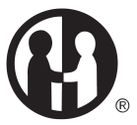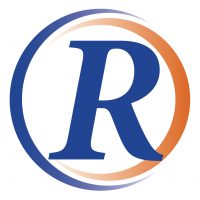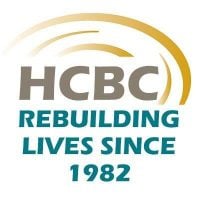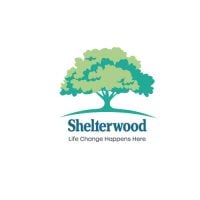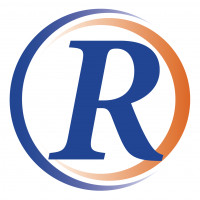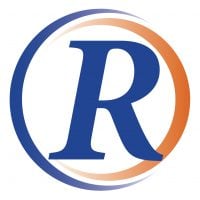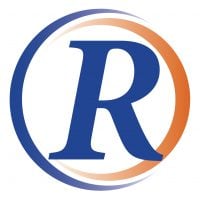Central State MHC - Blue Springs
Drug Rehab Center in Blue Springs, Missouri
Central State MHC - Blue Springs in Blue Springs, Missouri is a comprehensive mental health clinic offering a variety of behavioral health services, including addiction and substance abuse treatment, that embraces an integrated treatment approach and focuses on individuals' unique needs and challenges.
About Central State MHC - Blue Springs in Missouri
Central State MHC - Blue Springs is an addiction treatment facility located in Blue Springs, Missouri. Founded in 1984, this facility specializes in providing comprehensive care for individuals suffering from alcoholism, dual diagnosis, and drug addiction. Accredited by SAMHSA and holding a state license, Central State MHC - Blue Springs is dedicated to offering high-quality addiction treatment services.
At Central State MHC - Blue Springs, individuals can access a range of treatment options to meet their specific needs. The facility offers aftercare support, drug rehab, intensive outpatient programs, outpatient programs, and residential levels of care. This variety of treatment options allows individuals to choose the level of care that best suits their situation and recovery goals. Whether someone requires a more intensive inpatient program or prefers the flexibility of outpatient treatment, Central State MHC - Blue Springs offers a comprehensive continuum of care. With a strong affiliation with Central States MHC, individuals can expect specialized care and a multidisciplinary approach to addiction treatment at this facility.
Genders
Ages
Modality
Additional
Accreditations
State License
SAMHSA
Conditions and Issues Treated
Levels of Care Offered
This center offers a variety of custom treatment tailored to individual recovery. Currently available are Aftercare Support, Drug Rehab, Intensive Outpatient, Outpatient, Residential, with additional therapies available as listed below.
The Intensive Outpatient Program offered by Central State MHC - Blue Springs is designed for those who need intensive care but would rather get it in the comfort of their own home. The treatment programs vary in duration and intensity and can be tailored to suit the patient’s needs. The program includes regular visits to the facility, though the overnight stay is not needed. IOP is suitable for patients who have been treated in residential treatment programs and are in the transition phase. It helps the patient live at home and discharge some work or school responsibilities even while undergoing treatment. The patients gradually get back to their routine life with the support of a friend or family member.
Outpatient treatment is often used for drug addicts in drug rehab. Outpatient treatment consists of counseling and therapy sessions. This form of treatment is also called ‘day-treatment’. The outpatient treatment process begins with the addict’s initial detox period, lasting about ten days.
Outpatient treatment is used for those who are at moderate risk for ‘slipping back’ into the addiction, for those who:
- Are not currently experiencing any side effects from withdrawal and can handle social pressure
- Can handle stressors that might trigger relapse
- Have a stable living environment or have moved out of their previous environment, which was not conducive to being sober
- Have a support system that allows them to go to a facility a few times a week while still keeping their current responsibilities
- Have no legal obligations, being either on parole or probation, that require them to seek treatment at a mandatory facility
- Are not currently experiencing any side effects from withdrawal and can handle social pressure
- Have a stable living environment or have moved out of their previous environment, which was not conducive to being sober
Residential treatment programs are those that offer housing and meals in addition to substance abuse treatment. Rehab facilities that offer residential treatment allow patients to focus solely on recovery, in an environment totally separate from their lives. Some rehab centers specialize in short-term residential treatment (a few days to a week or two), while others solely provide treatment on a long-term basis (several weeks to months). Some offer both, and tailor treatment to the patient’s individual requirements.
Completing a drug or alcohol rehab program is only the first step. Then comes aftercare support. These services include sober living accommodations, career counseling, and AA/NA programs for those struggling with sobriety or who want help maintaining it after initial rehab at an addiction facility.
They can last up to a year or more depending on what’s needed most urgently after the earlier stages are completed.
Therapies & Programs
Because no single treatment is effective for all addicts, the goal of treatment and therapy should be to figure out what works best for each individual. Tolerance and withdrawal levels differ from person to person, affecting the treatment intensity required. Addiction treatment should aim to help addicts develop healthy coping mechanisms for dealing with their addiction and its underlying causes.
Family therapy is beneficial for people who are in addiction treatment services because it offers addicts the opportunity to work with their family members to better understand what led them to make choices that contributed to their addiction.
This type of therapy helps family members reach a deeper understanding of how they can best support their loved one during recovery. It also helps the addict better understand their own motivations and triggers that led them to turn to substance abuse.
Family therapy can help addicts in the following ways:
- Assists family members in processing difficult feelings so they don’t blame or resent recovering addicts
- Assists family members in understanding how addiction has impacted the addict and everyone who is involved with them
- Allows the addict to take responsibility for their actions, while encouraging improved communication skills
- Helps family members understand how to best support an individual in recovery so addicts don’t relapse again.
Group therapy can help build a stronger support system and give addicts in Blue Springs, MO insight into their addiction that they gain through shared conversations. Group therapy occurs in a controlled group environment, exclusive of one on one meetings. This makes it safer for patients to feel comfortable sharing the struggles they’re going through and gaining perspective.
Dialectical Behavior Therapy (DBT) is a cognitive-behavioral therapy that helps patients understand the relationship between their thoughts, feelings, and behaviors. It is beneficial for those whose addictions and behaviors stem from severe mental health issues. The term “Dialectic” means the integration of opposites. In substance abuse, DBT refers to accepting the patient’s addiction and working to change their thoughts and behavior. It improves life skills such as controlling intense emotions without reacting impulsively, resolving interpersonal conflicts effectively, and promoting awareness about self and others.
Cognitive-behavioral therapy is a technique that is used to help people with addiction. Specifically, it is a way of identifying thoughts and behaviors that cause the addiction. It is typically used in an individual counseling session.
The content explains cognitive behavioral therapy and how it works to address some behaviors that may be leading to unintended consequences in their life, as well as its benefits for those seeking sobriety.
It works by helping people to talk through their issues and addressing the thoughts that cause said behaviors. It is an excellent way of learning about oneself and one’s perception of the world.
Addicts seeking sobriety can find quick results with Rational Emotional Behavior Therapy. This type of counseling offered by Central State MHC - Blue Springs replaces negative and self-limiting thoughts with positive and productive behaviors. This allows addicts to move forward without having to deal with ongoing treatment throughout their lives. Individuals who are seeking sobriety can find quick results with Rational Emotional Behavior Therapy.
Payment Options Accepted
For specific insurance or payment methods please contact us.
Central States MHC Associated Centers
Discover treatment facilities under the same provider.
- Central State MHC - Lees Summit in Lees Summit, MO
- Central State MHC - Richmond in Richmond, MO
- Central State MHC - Warrensburg in Warrensburg, MO
- Central State MHC - Sedalia in Sedalia, MO
- Central State MHC - Lexington in Lexington, MO
Learn More About Central States MHC Centers
Additional Details
Specifics, location, and helpful extra information.
Blue Springs, Missouri 64015 Phone Number(816) 244-4417 Meta DetailsUpdated November 25, 2023
Staff Verified
Central State MHC - Blue Springs Patient Reviews
There are no reviews yet. Be the first one to write one.
Blue Springs, Missouri Addiction Information
Opioid-related overdoses in Missouri have been increasing steadily for the past three decades. In 2018, more than 1,130 people in Missouri died from opioid abuse. Methamphetamines and marijuana abuse have surpassed opioid abuse in Missouri. Missouri is the number 1 methamphetamine manufacturer in the country with more than 27 meth labs per 100,000 people.
More than 1,000 admissions to drug and alcohol rehabs in Blue Springs, Missouri, in 2016. Drug addiction and abuse can have a devastating impact on individuals and families. Additionally, more than 17% of residents reported binge drinking in the past month, also above the national average. Over 1,000 admissions to drug and alcohol rehabs in Blue Springs, Missouri, in 2016.
Treatment in Nearby Cities
- Piedmont, MO (233.3 mi.)
- Mountain Grove, MO (169.9 mi.)
- Saint James, MO (160.1 mi.)
- Poplar Bluff, MO (263.0 mi.)
- Fenton, MO (209.6 mi.)
Centers near Central State MHC - Blue Springs
The facility name, logo and brand are the property and registered trademarks of Central State MHC - Blue Springs, and are being used for identification and informational purposes only. Use of these names, logos and brands shall not imply endorsement. RehabNow.org is not affiliated with or sponsored by Central State MHC - Blue Springs.
